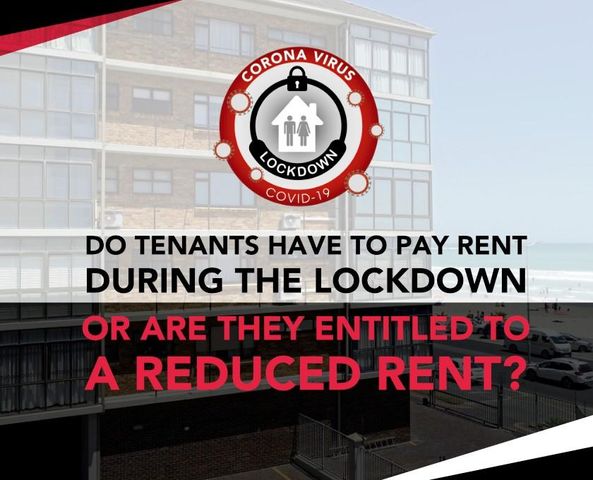Do Tenants Have To Pay Rent During The Lockdown - Or Are They Entitled To A Reduced Rent?
Subsequent the commencement of the nationwide COVID-19-lockdown, both landlords and tenants are facing an exceptional situation. The consequences of the lockdown have caused an increasing number of queries to arise and created a general panic among these parties.
Landlords are challenged with the question of whether to excuse their tenants' performance, the possibility of renegotiating payment terms and making amendments to the rental lease, and whether or not to pursue immediate defaults and take necessary legal action.
Tenants, on the other hand, are frantically looking towards landlords for financial assistance while some are even preparing legal defences against non-payment, including the claim that the lockdown constitutes a force majeure or vis major event.
- · Contractual law and lease agreements
In general, a tenant`s failure to pay the full rental amount on time constitutes a breach of the lease, entitling the landlord to cancel the lease (after written demand, where applicable), claim arrear rent, sue for damages and evict the tenant from the premises or claim specific performance. Usually the legal principles and processes are relatively straight forward.
In South African contract law, and depending on the parties' contract, if a tenant is denied the beneficial use and enjoyment of the leased premises, such tenant may possibly claim a rental reduction proportional to the reduced use and enjoyment of the premises. In the present context, the remedy of reduction in rent will be based on force majeure or vis major.
- Lockdown regulations as force majeure/vis major:
Force majeure and vis major are the French and Latin phrases describing an event that is uncontrollable and unforeseen, and ultimately prevents the fulfilment of the agreement. A growing number of legal academics are of the view that COVID-19 and the subsequent nationwide lockdown fulfils the aforesaid criteria and that it consequently qualifies as a force majeure or vis major event, thereby possibly lawfully exempting tenants from paying rent (whether in full or partially).
That clears it up, then? Not quite!
As referred to above, and as discussed more fully below, the particular wording of the agreement is of principal importance. A party intending to rely on force majeure or vis major (the tenant in this context) bears the onus of inter alia proving that the party does not enjoy beneficial occupation of the premises, and furthermore that the absence of such occupation is directly attributable to the event which is relied on (i.e. COVID-19 and the lockdown).
Beneficial occupation in the lockdown period
'Beneficial occupation' is a term that can be used to describe a premises that is capable of being used for its intended purpose.
Residential tenants will remain in occupation of their premises during the lockdown period, alternatively they will be entitled thereto, and therefore enjoy full beneficial occupation. There is therefore no contractual or other right for such tenants to withhold rental payment. If such a tenant cannot pay his/her rent because the lockdown has caused him/her to not receive an income, then that is merely an indirect consequence which does not entitle him/her to refuse the payment of rent and/or to claim a remission of the rental amount.
Commercial tenants who are now forced to be closed (i.e. those who do not fall within the definition of essential services), will obviously not have full beneficial occupation of the premises during the lockdown period. In such a case, where the closure is clearly a direct consequence of the lockdown, such a tenant may possibly be entitled to pay a reduced rent. The reason why such a tenant will typically not be entitled to receive a full remission of the rental, is that the tenant's furniture and other assets usually remain at the premises, resulting in the tenant still having some benefit.
A tenant, however, cannot him/her/itself decide when and how much the reduction of the rental amount will be. Most modern lease agreements contain a clause that excludes a tenant's entitlement to deduct or set-off any rental amounts for any reason whatsoever. The tenant is therefore usually obliged to first pay the full, agreed rental amount and to thereafter negotiate a remission with the landlord and/or to claim a remission through the Court. The particular lease agreement may furthermore exclude or limit the remedy of a remission of rent based on force majeure or vis major.
What is set out above merely constitutes an opinion, in the absence of any further lockdown regulations and/or court decisions on the topic. It is unknown how exactly courts will implement the law and/or react to any action taken by landlords. The uncertainty is exacerbated by the fact that each case and/or lease agreement is unique.
What is certain, however, is that COVID-19 and the resultant lockdown alone does not automatically excuse a tenant from paying rent. It is strongly advised that all landlords and tenants obtain legal advice to determine what their rights and obligations are during this time.

